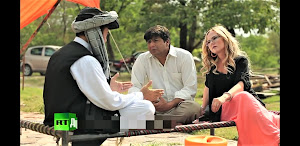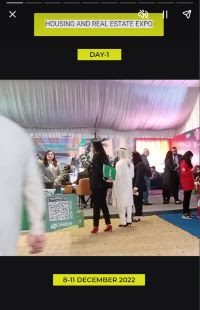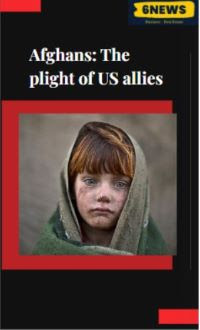By Atif Khan
There was excitement in the air at the Federal Investigation Agency's head office. There was a refreshing fragrance of fall-blooming flowers in the shinny corridors of the freshly painted building.
Many clad in ceremonial uniforms, every one in the building was neatly dressed. Their faces were glowing with excitement, the same enthusiasm that appears on the face of a soldier standing on the border before a decisive final battle.
And there was fear also, a fear of the unknown. Although presentations and exams are a routine matter for government officials, it was the most unique and demanding test of their lives that day.
The 13 member FATF team was visiting the Federal Investigative Agency's office to judge Pakistan's performance against money laundering and terror financing. They had to convince 13 highly trained and skilled foreigners . The fate of the country depended on how they perform.
Upon Pakistan's assurance that it had complied with all the FATF's points, the global money laundering and terrorist financing watchdog had opted for a field visit to the FIA headquarters.
At round noon, loud noise of sirens alerted the guards. Many held their breaths, due to anxiety. Abdul Qadir Qamar, the head of the cybercrime department, wiped off sweat from his forehead with tissue paper.
Confident Sumera Aziz's heart missed a beat. She had to brief the delegation. Soon the anxiety and tension vanished as the visiting delegation shook hands and exchanged pleasantries with their hosts.
Delegation was in gender balance. Westerns Europeans, Americans, and Indian origin officials were friendly and polite.
The delegation was on a one-hour visit. Half an hour was allocated for the briefing and half an hour for questions. But the guests, overwhelmed by the warm welcome and professionalism of the FIA staff, lost track of the time. The question answer session continued for around an hour.
During the session, reading satisfaction on the faces of the FATF team, many felt they had convinced the delegation by their replies.
And they felt it right. After few weeks, FATF on Friday announced removing Pakistan from the grey list. "Pakistan has completed 34 action items, therefore no longer subject to the FATF’s increased monitoring process", FATF said.
https://www.fatf-gafi.org/publications/high-risk-and-other-monitored-jurisdictions/documents/increased-monitoring-october-2022.html
There were numerous personalities and departments who played a pivotal role in the long battle spread over four years.
In 2018, after being placed on the Grey List, Pakistan constituted a team of top officers from Income Tax, NAB, FIA, ANF and Customs. The Army's Director General of Military Operations (DGMO) was also a member of the striking team. In the beginning, NAB was given the leading role, but later, the FIA earned major responsibility. FIA's Wajid Zia and Ihsan sadiq architected the whole project.
Sadiq, trained in money laundering from abroad, raised and trained a team of competent and efficient officers. From FIA, , Sumera, Nazia, Umbreen, Ayaz Khan, Mohsin Hasan Butt, Mohammad Tahir Rai, Khurram, Inspector Shah Rukh and hundreds of other filed officers played a pivotal role in devising and implementing anti money laundering and terror financing. Under Sadiq, Brigadier Salman led the effort with great dexterity and aplomb.
It was a gigantic task, but the FIA and other departments performed exceptionally well despite limited resources. Hundreds of thousands of donation boxes were removed from shops all over the country. Thousands of Madrassas and religious seminaries and their source of funding was streamlined. Influential and popular non-governmental organizations, including Jihadi organizations, were abolished.
All sources of illegal money transfer to Pakistan and from Pakistan were eliminated. Borders were secured. Banks were put under strict regulations and mechanisms. Illegal fund transfers through Hundi and Hawala were exterminated. Every money changer in the country was brought under scrutiny and regulations. gambles on prize bonds were uprooted, throughout the country.
Insiders claim the government, while taking steps against terror financing, made the permission procedure for international organizations so tough that now it is hard for many foreign NGOs to get permission and work in Pakistan.
A dislike for INGOs has been growing in Pakistan after Save the children helped U.S. spies hunt Osama bin Laden in Abbottabad in 2012.
https://www.reuters.com/article/pakistan-savethechildren-idINDEE88506V20120906
In a clandestine operation, Pakistani doctor Shakil Afridi confessed to taking blood samples from Osama Bin Laden's family, a fake vaccine drive and handing over the samples to his foreign handlers. Reportedly, Save the children staff in Pakistan was handling Shakil Afridi for the mission.
Pakistan has restricted other INGOS also, including Trócaire, and American Solidarity for spying against the country and propagating a foreign agenda in Pakistan.
Pakistan's biggest rival, India, has been blaming Pakistan for sponsoring terrorism in India through Jihadi organizations.
Some believe placing Pakistan under FATF was a reaction to closing Save the Children and other INGOS, and India jumped to score against its arch rival.
The demand to put Pakistan on the gray list came from Pakistan's long-time ally, the United States.
The FATF plenary meeting on June 2018 put Pakistan on the grey list blaming" strategic deficiencies” in its efforts towards mitigating money laundering and terror-financing. If three countries had supported Pakistan, it could have stayed out of the gray list. But the United States forced Pakistan's long-time friends Saudi Arabia, China and Turkey to vote against Pakistan.
The U.S. convinced China by promising a vice presidentship of the FTAF. Saudi Arabia was promised similar benefits.
Gray listing does not mean economic closure, but countries included in the graylist are closed to foreign investment and find it difficult to get loans from international financial institutions, including the IMF.
For a developing country like Pakistan, this meant increasing difficulties, but it proved to be a blessing in a disguise, in the long run.
The improved documentation, thanks to the FIA and other departments, will bring a large chunk of Pakistan's undocumented economy into the tax network.








0 Comments